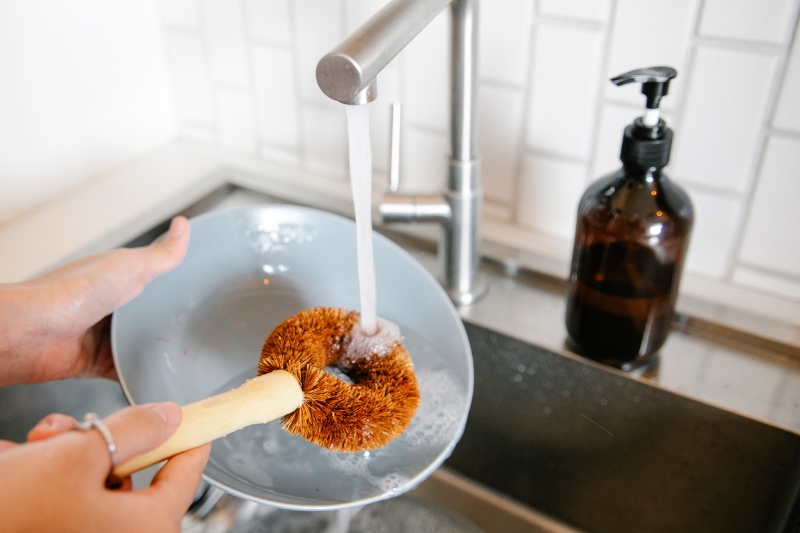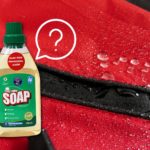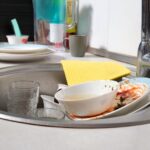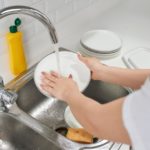It’s happened to all of us: you forget to pick up washing up liquid at the supermarket and you’re faced with a huge pile of dishes. Or you accidentally reached for the hand soap instead of the washing up liquid and have already slathered it all over your dishes.
What now? Do you go ahead and use hand soap to wash your dishes? Is it safe? Will it clean your dishes?
In this article, we find out whether these types of soap are interchangeable and whether you’re getting clean dishes if you substitute dish soap for hand soap.
Can You Use Liquid Hand Soap to Wash Your Dishes?
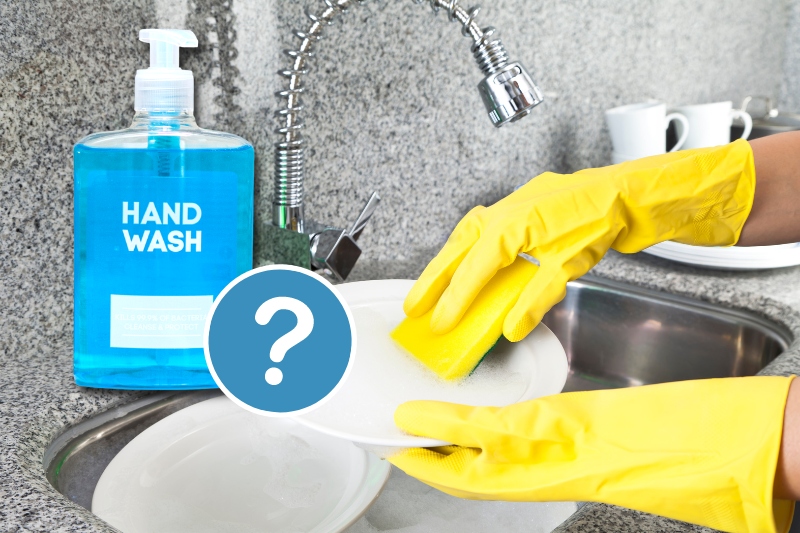
You can use liquid hand soap to wash your dishes, but it’s only recommended if you have no other choice.
If, as mentioned before, you can’t get to the shops to buy washing up liquid, or you’ve accidentally used hand soap, your dishes will still be clean.
However, dish soap is specifically designed to remove food and grease, whereas hand soap isn’t. Dish soap is much more efficient at getting your dishes clean, especially pans.
Hand soap may require more effort to clean dirty dishes and may also leave an oily film behind. This is because it contains moisturising ingredients.
In addition to this, hand soap can contain ingredients that are best not to ingest, such as fragrances, parabens and sulphates.
If you do need to use hand soap for dishes, be sure to rinse them thoroughly. Avoid using hand soap for children’s items such as bottles, cups and bowls.
Can You Use Dish Soap to Wash Your Hands?
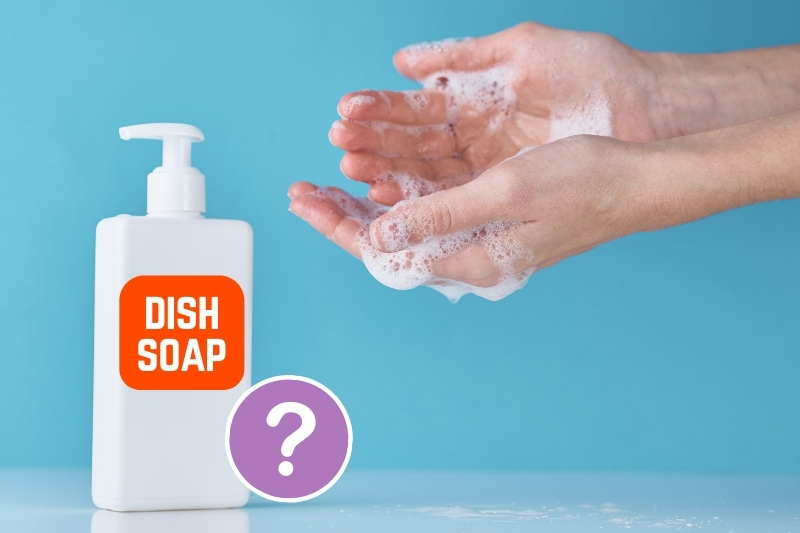
By the same token, dish soap/washing up liquid isn’t designed for hands. Of course, it’s not dangerous and it will clean your hands.
But dish soap is more concentrated and contains ingredients to help remove grease. Over time, these harsher ingredients could lead to your hands drying out.
What Can You Use to Wash Dishes If You Don’t Have Washing Up Liquid?
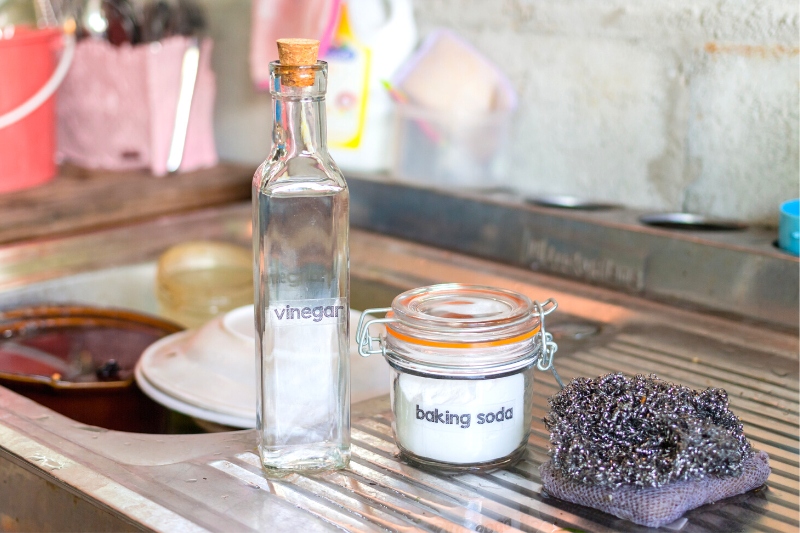
Bicarbonate of soda
One of the most effective alternatives to washing up liquid is bicarbonate of soda. It absorbs grease and its abrasive, making it effective in removing food.
You can make a paste by adding water to it or sprinkle some directly onto your dishes and wash as normal with water.
Bar soap
You can also use bar soap which is slightly different to hand soap. Hand soap often contains antibacterial properties whereas bar soap doesn’t. This makes it safer to use on items that are in contact with food.
Vinegar
Dilute three tablespoons of white vinegar with a cup of water, spray the mix onto your dishes and leave for 10 minutes. Scrub the dishes and rinse as normal.
You can also adapt the ratio to fill a wash bowl and leave your dishes to soak for about 30 minutes. Scrub and rinse as normal.

In The Wash is your guide to the best laundry and cleaning products, tips and tricks. Our mission is to solve the UK’s cleaning and laundry dilemmas!
